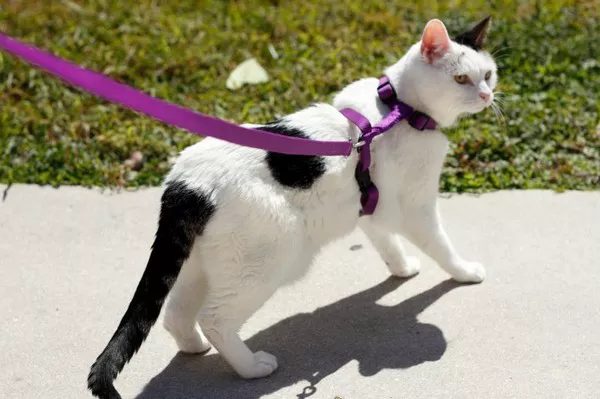Training a kitten is an essential aspect of responsible pet ownership, helping to establish good behaviors and routines that will benefit both the kitten and their human companions throughout their lives. However, determining the best age to begin training can be a nuanced decision, influenced by factors such as the kitten’s developmental stage, individual temperament, and specific training goals. In this article, we’ll explore the considerations involved in determining the optimal age to start training a kitten, providing insights and guidance for pet owners embarking on this rewarding journey.
Understanding Kitten Development
Before delving into the topic of training, it’s essential to have a basic understanding of kitten development. Kittens undergo rapid physical and cognitive growth during the early stages of life, progressing through various developmental milestones as they mature into adult cats. The following are key stages of kitten development:
Neonatal Stage (0-2 Weeks): During the neonatal stage, kittens are entirely dependent on their mother for warmth, nourishment, and care. They are born with closed eyes and ears and spend most of their time sleeping and nursing.
Transitional Stage (2-4 Weeks): As kittens transition out of the neonatal stage, they begin to open their eyes and ears, becoming more aware of their surroundings. They also start to become mobile, crawling and exploring their environment with wobbly movements.
Socialization Period (4-12 Weeks): The socialization period is a critical phase of kitten development, during which they learn important social skills and behaviors through interactions with littermates, their mother, and humans. Kittens become increasingly playful, curious, and receptive to learning during this stage.
Juvenile Stage (12 Weeks and Beyond): By the age of 12 weeks, kittens are considered juveniles and have developed more independence and coordination. They continue to refine their social skills and behaviors, becoming more adept at hunting, grooming, and interacting with their environment.
Factors Influencing the Training Process
Several factors can influence the timing and effectiveness of training efforts with kittens. Understanding these factors can help pet owners make informed decisions about when and how to begin training their furry companions. Some of the key factors to consider include:
Individual Temperament: Each kitten has a unique personality and temperament, which can influence their responsiveness to training. Some kittens may be more outgoing, confident, and eager to learn, while others may be more reserved, cautious, or independent. Tailoring training methods to suit your kitten’s temperament can enhance the training experience and promote success.
Health and Well-being: The health and well-being of the kitten should always be a top priority when considering training activities. Kittens should be in good physical health and free from underlying medical issues that could impact their ability to participate in training sessions. It’s essential to consult with a veterinarian to ensure that your kitten is healthy and ready for training.
Socialization and Exposure: Early socialization and exposure to various stimuli play a crucial role in shaping a kitten’s behavior and responses to training. Exposing kittens to different people, animals, environments, and experiences during the socialization period can help build confidence, reduce fearfulness, and lay the foundation for successful training outcomes.
Training Goals and Methods: The specific training goals and methods employed will also influence the timing of training efforts. Basic obedience training, litter box training, and behavior modification techniques can be introduced at different stages of kitten development, depending on the desired outcomes and individual needs.
Determining the Best Age for Training
Given the various factors at play, pet owners may wonder when is the best age to begin training their kitten. While there is no one-size-fits-all answer, the following guidelines can help determine the optimal timing for initiating training activities:
Early Start for Basic Skills: Basic training and socialization efforts can begin as early as the socialization period, typically around 4-8 weeks of age. During this critical window of development, kittens are highly receptive to learning and can quickly pick up essential skills such as litter box training, proper scratching behavior, and basic obedience commands.
Gradual Introduction of Training Activities: While basic training can commence during the socialization period, more complex or intensive training activities may be introduced gradually as the kitten matures and develops. For example, agility training, leash training, and advanced obedience training may be better suited to kittens in the juvenile stage, around 12 weeks and older, when they have greater coordination, attention span, and cognitive abilities.
Consistent Reinforcement and Practice: Regardless of the age at which training begins, consistency, patience, and positive reinforcement are essential components of effective training. Training sessions should be kept short, fun, and engaging, with a focus on rewarding desired behaviors and avoiding punishment or coercion.
Consider Individual Readiness: It’s important to assess your kitten’s individual readiness and willingness to participate in training activities. Some kittens may be eager and enthusiastic learners from a young age, while others may require more time and patience to develop confidence and trust in the training process. Tailor training methods and expectations to suit your kitten’s unique needs and abilities.
Training Tips for Success
Regardless of the age at which training begins, the following tips can help set you and your kitten up for success:
Start Early: Begin training and socialization efforts as early as possible to take advantage of the critical socialization period and maximize learning opportunities.
Use Positive Reinforcement: Reward desired behaviors with treats, praise, or play to reinforce good habits and encourage your kitten to repeat them.
Keep Sessions Short and Fun: Keep training sessions short, frequent, and enjoyable to maintain your kitten’s attention and prevent boredom or frustration.
Be Patient and Consistent: Be patient with your kitten and remain consistent in your training efforts, reinforcing desired behaviors consistently and avoiding punishment or negative reinforcement.
Seek Professional Guidance: If you encounter challenges or have specific training goals, consider seeking guidance from a professional animal behaviorist or certified trainer who can provide personalized advice and support.
See Also: The Best Age to Train a Cat
Conclusion
Training a kitten is an exciting and rewarding journey that requires patience, consistency, and a deep understanding of kitten development and behavior. While there is no one-size-fits-all approach to training, considering factors such as the kitten’s age, temperament, and individual needs can help determine the optimal timing for initiating training activities. By starting early, using positive reinforcement techniques, and tailoring training methods to suit your kitten’s unique abilities, you can lay the foundation for a lifetime of positive behaviors and strong bond between you and your furry companion. Remember to enjoy the process and celebrate each milestone along the way as you embark on this fulfilling journey together.


























